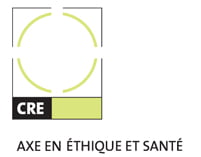“Nanofoods – are we biting off more than we can chew?”
*** Un lunch sera servi à partir de 12h30 au 422. Bienvenue à tous!***
Le CRÉUM est fier d’accueillir Chris Groves (Cardiff University, UK), qui viendra nous parler de l’éthique des “nanofoods”.
Is it all about risk? Learning the right lessons from GM for nanofoods
Worries voiced by industry and governments that nanotechnology, particularly as applied to e.g. food enhancement, might be the “next GM” have focused on the roots of social attitudes to novel technologies. Fears that the industry might face a “Frankenfood” moment in the future rest largely on conventional wisdom – that is, assumptions that “the public” is fearful of the unknown, or more precisely, that individuals increasingly respond to new technologies in a highly risk-averse manner. Although the “deficit model” of science communication (in which public attitudes are conceived of as being a direct result of a lack of reliable information about the risks and potential benefits of new technologies) has been under attack for many years, these assumptions about the public arguably demonstrate that it remains influential, and has resulted in a defensive stance on the part of business and governance actors towards a public whose irrationality is perceived as itself posing a risk to innovation.
However, social science research demonstrates that risk and hazard are not, in and of themselves, the main sources of negative public reaction to new technologies, and particularly in relation to GM. Other sources of public disquiet and distrust about GM have been shown to be much more important, which relate not to the unknown but to the known, to past experience with other technologies. People’s views about new technologies tend to be inflected by their distrust in business organisations, the expectation that technologists and regulators alike have trouble acknowledging areas of persistent uncertainty, and the view that regulation tends to be unable to cope with unpleasant surprises. This paper shows how deliberative public engagement exercises around nanotechnologies in the UK and elsewhere have suggested that the same factors may be in play with regard to public views of nanotechnologies, and may become more significant in the future. It also discusses a recent nanofutures study in the UK with an expert panel confirms that a comparison between GM and nano should be made, but how it is framed should be carefully considered, and the lessons which should be drawn from it may be different to those which governments and companies have drawn from the “conventional wisdom”. Indeed, it provides evidence that supports the view that government and industry associations should vigorously pursue a range of public engagement activities, particularly around potentially controversial applications of the technology, such as certain food uses.
La présentation sera suivie par une table ronde composée de Frédéric Bouchard, d’Antoine Panaïoti et de Peter Dietsch.
La rencontre sera tenue de 13h00 à 14h30, dans la salle 422 du 2910 Édouard-Montpetit.
Veuillez noter que la présentation et les discussions qui suivront se feront en anglais.



